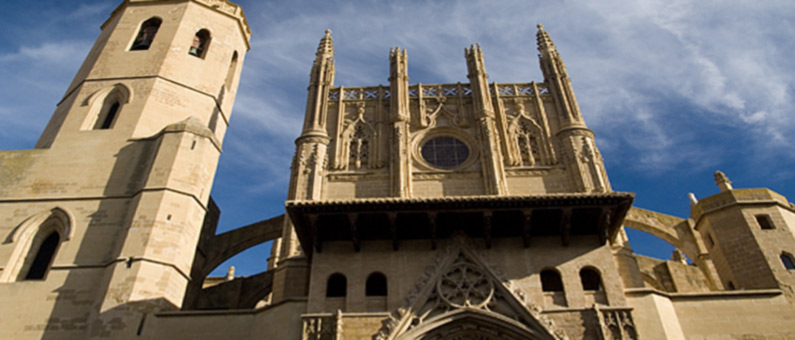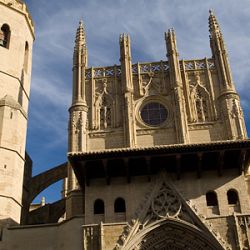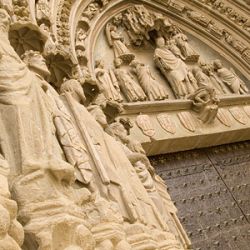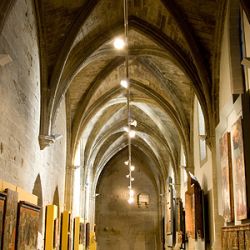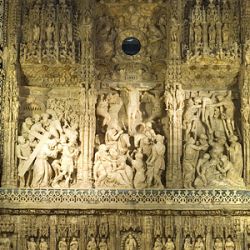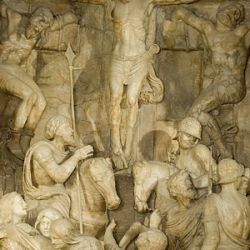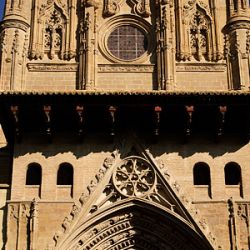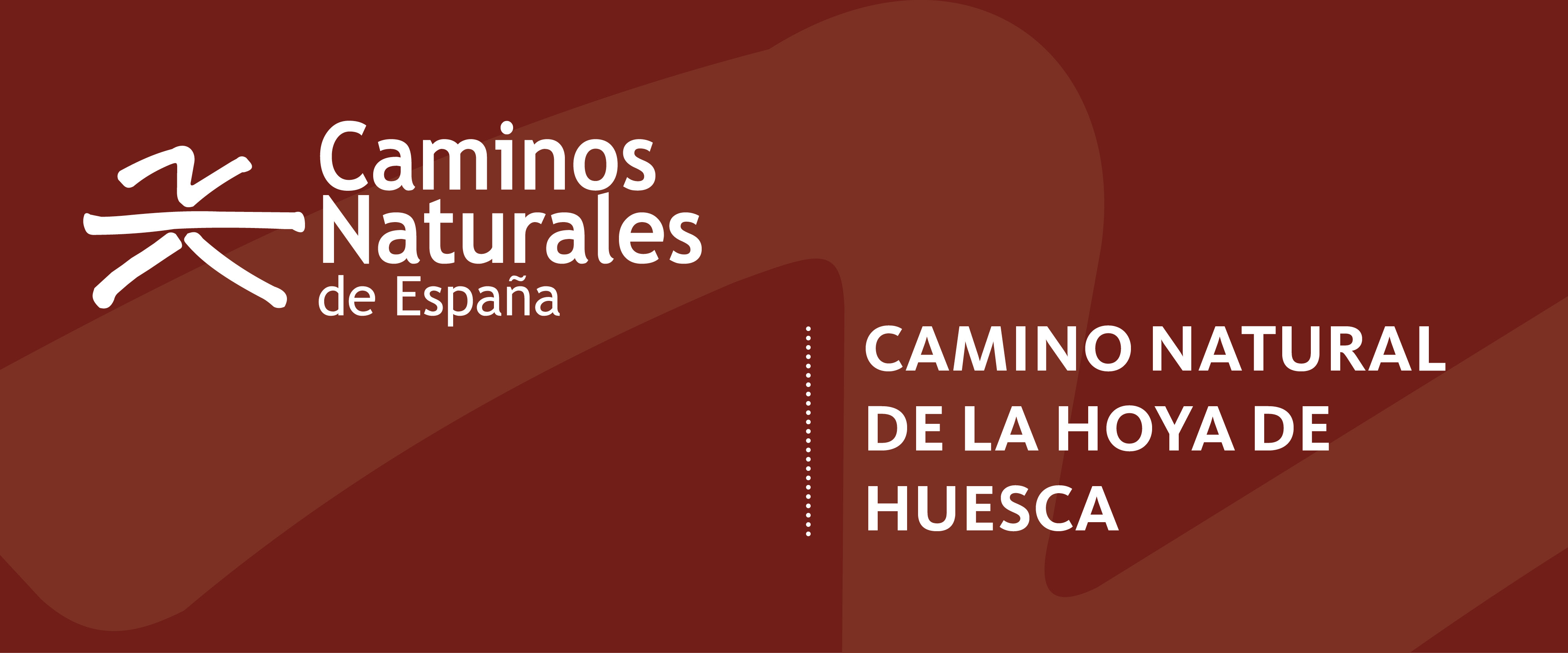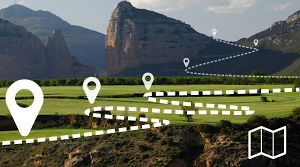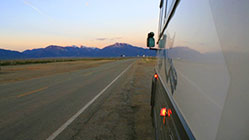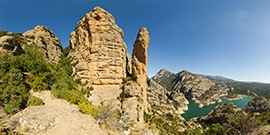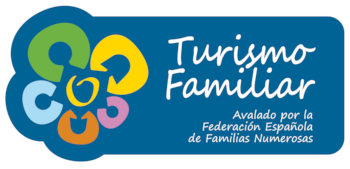Its architecture relates the history of Huesca
This is a Gothic temple built over the ancient Moslem Mosque. Jaime I the Conqueror ordered its construction in 1273. The entrance is sculpted in the greatest detail and protected by large eaves, typically Aragonese. The eaves were carved in wood and added to the entrance in the XVI century. The lower part comprises different primitive Gothic styles (XIII), and the more flamboyant Gothic style is used for the upper part (XVI). The façade is outstanding for its splendid decoration crowned by pinnacles. The main entrance door has seven pointed arches all sculpted. You can see images of the Virgin and the Christ Child on the tympanum. The Cathedral has three naves, transept and apse, and the tower on the façade is square terminating in an octagonal design.
The inside is luminous. The lateral naves, lower in height than the central one, have 14 chapels. The Rosary chapel with its Gothic altar is one of the most outstanding. It gives onto the old sacristy and, from there, to the Cathedral archives where you will find incunabula from the XI to the XVI centuries. The chapels of Lastanosa – patron of Baltasar Gracián – and the Saintly Christ of the Miracles – whose miracles towards the end of the XV century cured the city of a plague, are both of interest. However, one of the most valuable pieces is its high altar with an extremely beautiful Renaissance altarpiece (1520 to 1534), an alabaster masterpiece sculpted by Damián Forment which represents the Passion of Christ.
Next door to the Cathedral is the Diocesan Museum, installed in the ancient Cloister and Episcopal Palace. Within the Museum there are rooms with exhibitions of gold and silverware in the ancient chapterhouse at the end of the temple, and those with Mediaeval, Renaissance and Baroque art, off the Transept.
Data of interest
Address: Plaza de la Catedral, s/n 22002 Huesca
Telephone: 974 231 099
Visits
Monday-Saturday, 9.00 to 13.30 and 16.30 to 18.30 hours, as long as mass is not being celebrated.
Sunday and Public Holidays open for prayer: 9 to 13 and 16.30 to 18.30 hours.
There are guided visits for groups with a minimum of 20 people (these visits can be arranged in the Diocesan Museum)
Price: included in the visit to the Diocesan Museum and the Tower..

















